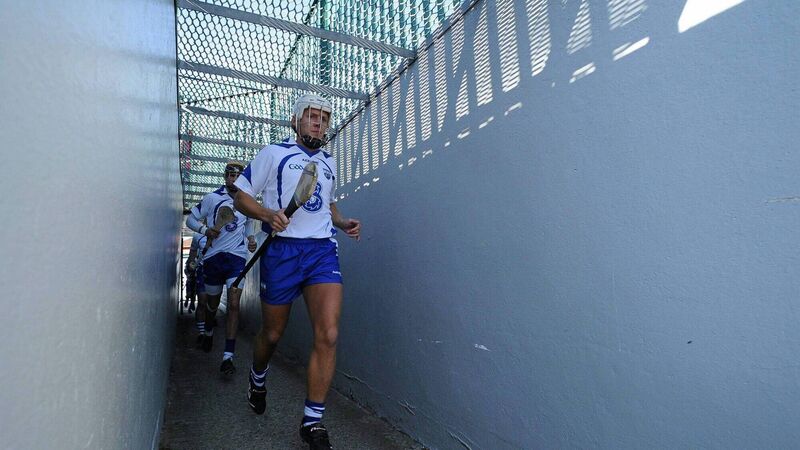Michael Moynihan: A plan for the future that puts the customer first

Stephen Molumphy leads Waterford out onto the pitch ahead of a 2010 National League clash with Dublin at Walsh Park. As the venue is to undergo redevelopment, Michael Moynihan says it’s interesting to see a county board decide that it won’t succumb to the traditional edifice complex. Picture: Matt Browne
Last week’s launch of the Waterford GAA strategic plan was notable for quite a few reasons, not least as a diversion from the ongoing misery. It was a tonic to talk (relative) mundanities like games development and fixture scheduling.
And the redevelopment of Walsh Park. During the launch Michael Walsh, one of the members of the strategic plan committee, observed of the upgrade: “It would have been targeted as a 16,000 (capacity) stadium, we think probably 12,000-13,000, but we want it to be a niche stadium that would be best in its class in the country on that scale, in terms of the customer experience and presence as a showcase for Waterford GAA.









